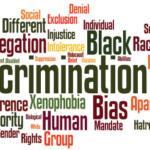Of course, things in real life are rarely this cut and dried, and these categories overlap a great deal. In my case, invalidating my sense of belonging is a microinvalidation, and judgment of my spoken English can be seen as a microinsult.
Microaggressive or Passive Aggressive?
Or were these microaggressions at all? I’ve drunk plenty of cups of chai discussing this scenario with my fellow Indian American colleagues because it is so common. There is no uniformity in their responses, which range from anger to dismissal to bemusement. While I have not explicitly asked people who ask me “Where are you from?” to explain their reasoning, it seems like they would not see it as aggression but rather as simple curiosity. Moreover, each instance is subtly different, with nuances that make it hard to distill into an objective, concrete reality.
Another issue is also at play, one that makes me uncomfortable discussing this topic. I am not truly from a socially marginalized group, as the original term emphasized. Yes, I am Indian American, and 50% of Indian Americans have experienced discrimination over the past year, but I come from a community that is, by and large, not socially or economically disadvantaged.2,3 Just as importantly, I don’t identify as being from another socially marginalized group that would be even more likely to be on the receiving end of microaggressions. So, truth be told, as far as microaggressions are concerned, I have certainly not experienced the worst of it.
It’s also not just my own identity that plays into the difficulty of defining and characterizing a microaggression. As mentioned, I live in Iowa, the exemplar of Midwest nice, which is ingrained within the culture to avoid conflict, minimize awkwardness and uphold politeness. Passive aggressiveness is a veritable language throughout many areas of the U.S. and the world, with its own set of unique idioms that can be interpreted ambiguously. When does this passive aggressiveness veer into microaggression?
There’s no clear answer, but a thought experiment may be in order. If I were not visibly brown, would the question “Where are you from?” or the statement “Your English is really good” be passive aggressive? I’m not sure. What if the patient were also brown? Perhaps. Such permutations don’t really provide a lot more clarity unless taken to the extreme.
Microinterventions
Regardless of what we may call it, if a statement makes you feel uncomfortable, it’s hard not to react. In the recent past, the advice, at least in my institution, has been to remain inactive or passive. When I complained to a senior colleague about an unfortunate interaction, he let me know that the best course of action was to “give them an out.” And certainly that’s an option to deal with microaggressions, which has the short-term benefit of de-escalation, but it may not be a viable long-term strategy.


